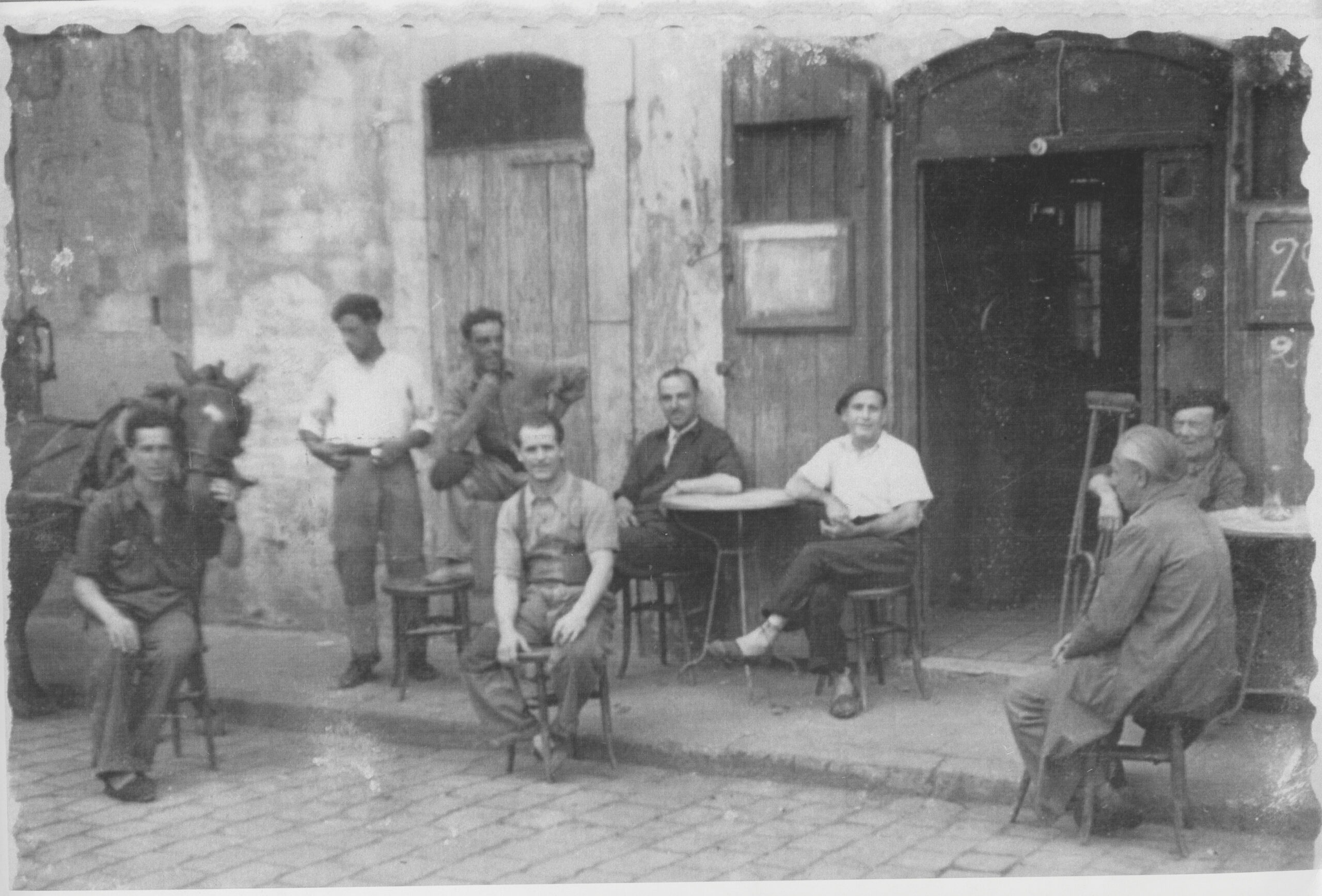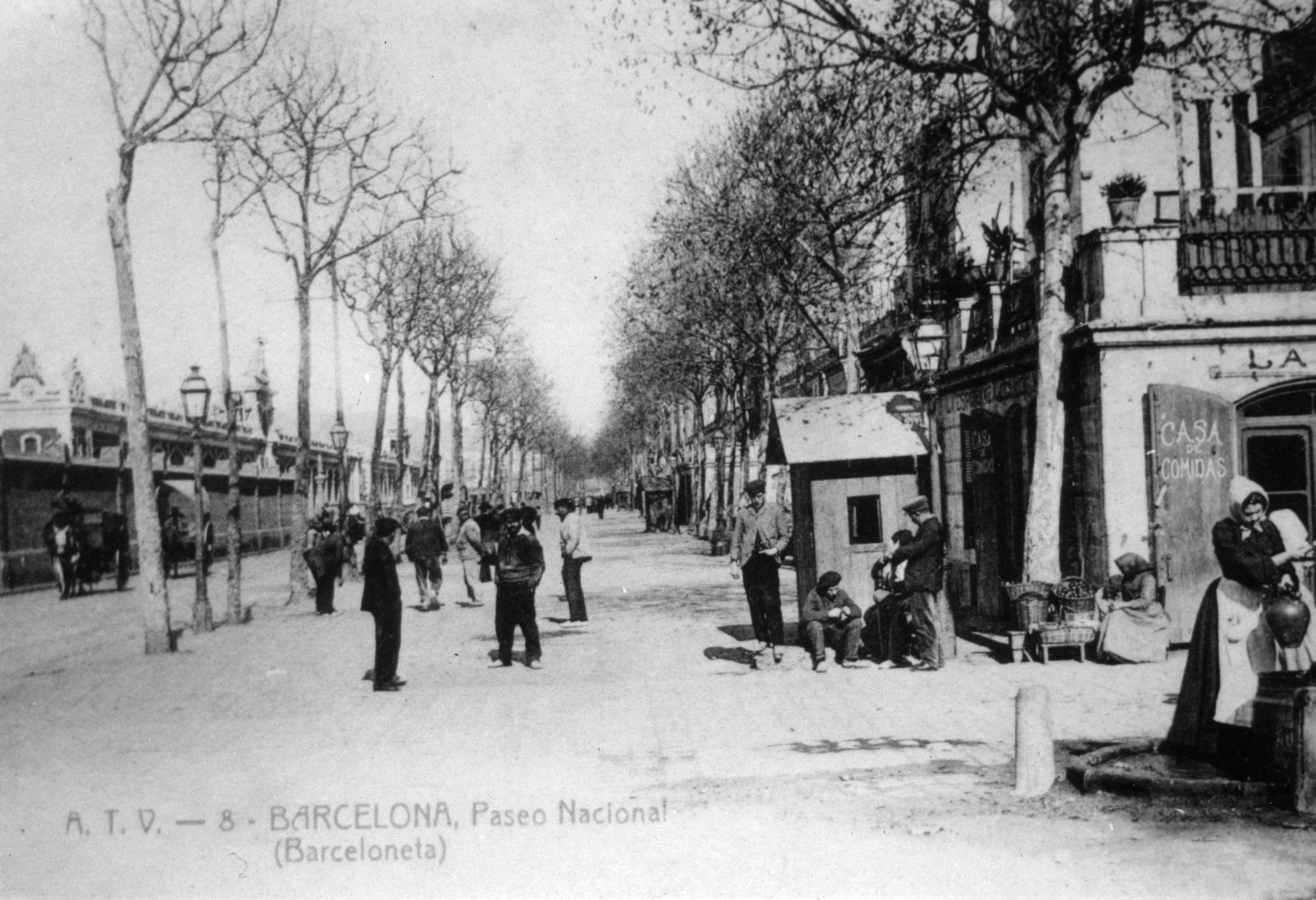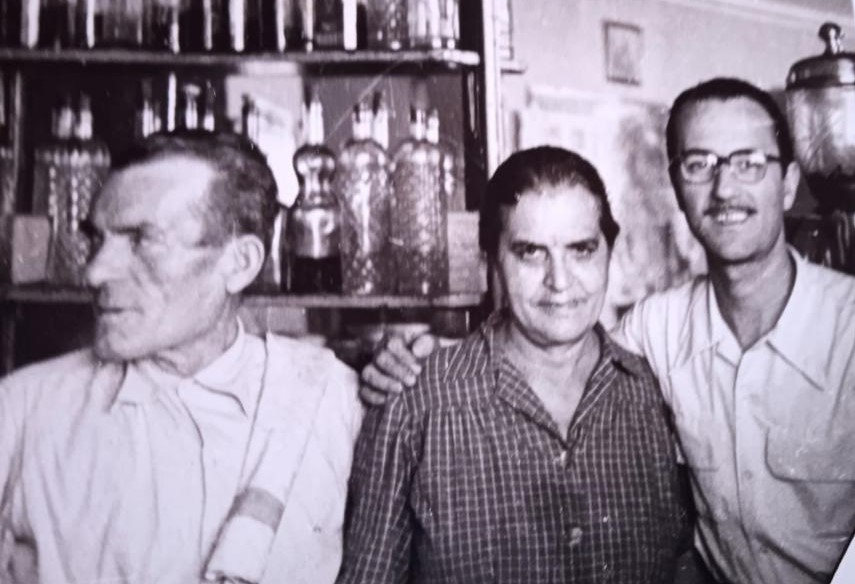Las Pudas – the taverns of Moll de la Riba
Barceloneta has always been a neighbourhood with a great tradition of restaurants and eating houses. We can boast of being a gastronomic reference in the city. A few years after its construction, there were already inns, cafes, lodges and taverns, the best known of which were in the Moll de la Riba. They are the ones called Pudas.
The Moll de la Riba was built in the 19th century, where the Port Vell extends today, a promenade formed by a landing stage, not very wide, known as “el rebaix” and a counter-dock with about eighty warehouses, of not much capacity, which served, at first, to store goods. Above this counter-dock, which was ascended by six stairs, there was a long platform that was used both for strolling and for stowing goods that could be stored outdoors. We remember that at that time, the Port of Barcelona was one of the most important in Spain, not only for its activity, but also because of the arrival of products from all over the world.
In these warehouses very soon some offices, consignees and shipowners’ offices were set up, where they kept the tools and naval equipment, or where craftsmen, of various trades, dedicated to navigation had their offices as well.

“Ecclesiastical authorities denounce the low morals of the people who frequented them.”
A place with a dubious reputation
Because of the activity in the Port and its use as a leisure area by the inhabitants of the city, who went outside the walls for a stroll, some clever man must have seen the opportunity to do business, transforming some of these warehouses into small taverns commonly known as Pudes at a time that cannot now be exactly determined. Little is written about these establishments, we do not know their origins, but what we do know for sure is that, after 1860, they gave the Riba a colourful and spicy air, perhaps a little too vulgar, where the regular customers were sailors, fishermen, people of the lower depths and citizens wanting new experiences.
In the hours of rest, and when the weather was bad, the Pudas were the refuge of the seafarers who went to drink, to grab a bite, to gamble some money at dice or cards. The bad reputation of these establishments even made the ecclesiastical authorities denounce the low morals of the people who frequented them.
We are talking about spaces with little ventilation and with a fetid aroma and the odours of fish. They had two access doors, at least a window and a low ceiling back.
What strikes us most about these establishments is their name. Some say that it has its origin in the bad smell of the food that was served, basically fried fish, whose smell bothered the people who strolled through the Riba. Others see the origin in the sulphurous water sources that give off a strong and unpleasant odour. Puda as it sounds, has no grammatical sense and historians, so far, have not found the origin.

Puda Can Manel
At the end of the 19th century, the Pudas had to close or move to other places, as a consequence of the demolition of the Moll de la Riba, in order to build the large port warehouses, which until 1992, were part of the urban landscape. But not all the Pudas disappeared.
One of the most famous, which unfortunately closed a few years ago, was the Puda Can Manel. It was opened in 1870 by Manel Domenech who also gave it its name and it was located in a warehouse in Moll de la Riba. In approximately 1902, when the Moll was demolished, it was moved to the Paseo Nacional and in 1959 it was transformed into a restaurant. The prestigious Catalan writer Josep Pla refers, in some of his books, to the Puda de Can Manel, as a place of good food where you always had to queue.
Replaced by eating houses and taverns
When the Pudas disappeared, the role was taken over by the eating houses or bars that evolved into restaurants, as is the case of Can Solé. Founded in 1903 by Gregori Solé, it fed the factory and port worker. It soon became very popular and became a fashionable establishment with loyal customers in every era, such as Santiago Rusiñol and Vázquez Montalbán.
Unfortunately, the memory of the Moll de la Riba has been almost erased, but the image of a very special character is still alive, like a tradition that does not fade. Someone had the whim, we do not know when, to hang a figurehead of a ship on the external wall of his establishment. This tradition was increasing, and more and more establishments decorated their doors with figureheads. Of all these masks exposed to the curiosity or to the laughingstock of the public, the wooden figure has come down to our days, rotten, dirty and blackish, with the ratted nose, that the boatman Francesc Bonjoch placed on the window of his workshop, located in front of the Font de Neptuno. We do not know what it represents very well, but we know it by the name of the Negre de la Riba.

